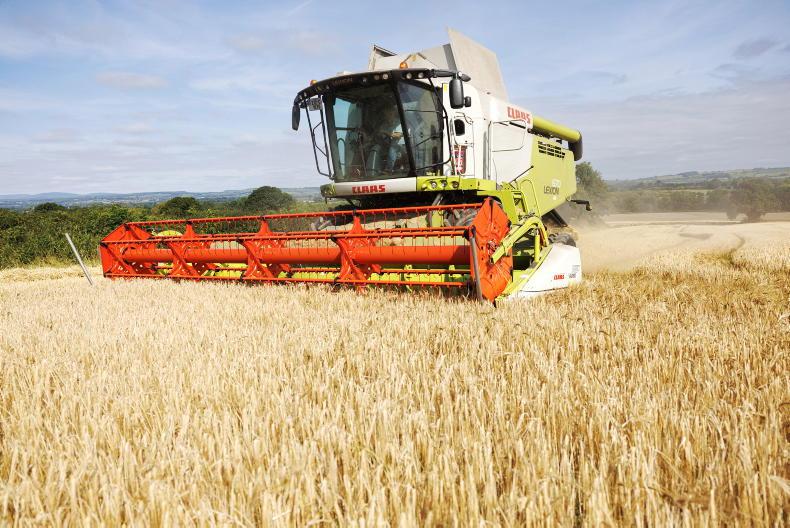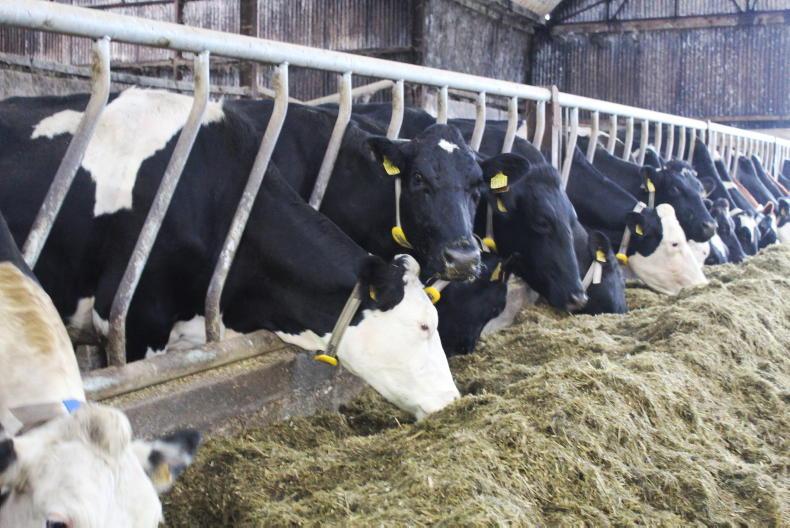Representatives from the horticulture and potato sectors are due to meet Agriculture Minister Edwin Poots this week as they make the case for a slice of the £25m coronavirus fund coming from the Stormont Executive.
It pretty much brings to an end the lobbying done across the farming industry, with representations also put forward in recent weeks by dairy, beef, sheep, hill farming and broiler-breeder producers.
“I will carefully consider all those views and opinions, and will, in the near future, make a decision on how best to allocate this funding in a fair and equitable way, based on evidence,” the minister told MLAs this week.
It is also important to note that I am still concerned about the longer-term market for livestock
Answering a question from party colleague Harry Harvey on whether he will provide support for the sheep industry, the minister said the package will be targeted towards businesses hardest hit financially by COVID-19. He maintained that DAERA officials are monitoring the impact on all sectors, including sheep, and said he was “reflecting on” the impact of the collapse of the wool market on sheep farmer incomes.
If market developments over the coming weeks and months dictate that we need more funding, I will go back to the Executive to seek additional support
“It is also important to note that I am still concerned about the longer-term market for livestock and the knock-on effect that the pandemic might have on farmgate prices later in the season, when more lambs are marketed and store lambs are sold. If market developments over the coming weeks and months dictate that we need more funding, I will go back to the Executive to seek additional support,” Minister Poots told Harry Harvey.
UFU position
In a statement this week, the UFU again highlighted the lobbying it has done for support to the beef and sheep sector, and specifically £50/head paid on cattle in the first six months of 2020, and a further £60/head during the seven-week period from the end of March.
For lamb, the UFU want a payment of £8 per lamb slaughtered for the four-week period to 18 April.
However, the UFU is yet to publically declare what it has asked for across other sectors, including milk, which in the initial calculations was expected to get a significant share of the £25m fund.
A paper which has looked at the impact of COVID-19 on NI dairy producers, prepared by consultancy firm EY, and commissioned by Dairy UK, has also not been made public.
Minister wants trade deal done
Answering a question from SDLP MLA Pat Catney, Minister Poots has said it is a key priority for him that the UK and EU agree a zero tariff and zero quota trade deal at the end of the transition period, with maximum alignment on rules for goods moving across borders.
With the Irish protocol coming into effect at the end of the Brexit transition period, it will mean NI is within the UK customs territory, but will follow EU rules for goods, allowing trade to flow across the Irish border. It will also mean some checks on goods coming from Britain to NI.
“From 1 January, the greater the deviation between the UK and the EU in terms of trading arrangements, tariffs and sanitary and phytosanitary (SPS) rules, the more difficult and intrusive the protocol becomes” acknowledged the minister.
He also said it will be a significant challenge to have a fully operational regime in place by the end of the year, and that will only be greater if the UK and EU fail to reach a satisfactory agreement.
Praise for workers in food processing
Agriculture Minister Edwin Poots has praised the loyalty and commitment of workers in food processing businesses in NI during the coronavirus lockdown.
While a number of a number of food processing businesses in NI have been hit with outbreaks, they have remained operational.
“Their work has been key and we should be very proud of what has been achieved by them” said the minister, who added that these people often did jobs that a lot of others “turn their nose up at”.
He acknowledged that there had been some issues in factories, but sometimes the problems were compounded by the fact that many workers live and travel together, which makes an outbreak of the virus more likely.
“That said, the levels of absenteeism in the workforce are incredibly low. The public sector would be delighted if it could get to the levels of absenteeism that the private sector workforce has achieved in the midst of a pandemic,” he said.
Read more
Poots hits out at divisive debate over £25m
NIMEA put case for £13m to beef
Representatives from the horticulture and potato sectors are due to meet Agriculture Minister Edwin Poots this week as they make the case for a slice of the £25m coronavirus fund coming from the Stormont Executive.
It pretty much brings to an end the lobbying done across the farming industry, with representations also put forward in recent weeks by dairy, beef, sheep, hill farming and broiler-breeder producers.
“I will carefully consider all those views and opinions, and will, in the near future, make a decision on how best to allocate this funding in a fair and equitable way, based on evidence,” the minister told MLAs this week.
It is also important to note that I am still concerned about the longer-term market for livestock
Answering a question from party colleague Harry Harvey on whether he will provide support for the sheep industry, the minister said the package will be targeted towards businesses hardest hit financially by COVID-19. He maintained that DAERA officials are monitoring the impact on all sectors, including sheep, and said he was “reflecting on” the impact of the collapse of the wool market on sheep farmer incomes.
If market developments over the coming weeks and months dictate that we need more funding, I will go back to the Executive to seek additional support
“It is also important to note that I am still concerned about the longer-term market for livestock and the knock-on effect that the pandemic might have on farmgate prices later in the season, when more lambs are marketed and store lambs are sold. If market developments over the coming weeks and months dictate that we need more funding, I will go back to the Executive to seek additional support,” Minister Poots told Harry Harvey.
UFU position
In a statement this week, the UFU again highlighted the lobbying it has done for support to the beef and sheep sector, and specifically £50/head paid on cattle in the first six months of 2020, and a further £60/head during the seven-week period from the end of March.
For lamb, the UFU want a payment of £8 per lamb slaughtered for the four-week period to 18 April.
However, the UFU is yet to publically declare what it has asked for across other sectors, including milk, which in the initial calculations was expected to get a significant share of the £25m fund.
A paper which has looked at the impact of COVID-19 on NI dairy producers, prepared by consultancy firm EY, and commissioned by Dairy UK, has also not been made public.
Minister wants trade deal done
Answering a question from SDLP MLA Pat Catney, Minister Poots has said it is a key priority for him that the UK and EU agree a zero tariff and zero quota trade deal at the end of the transition period, with maximum alignment on rules for goods moving across borders.
With the Irish protocol coming into effect at the end of the Brexit transition period, it will mean NI is within the UK customs territory, but will follow EU rules for goods, allowing trade to flow across the Irish border. It will also mean some checks on goods coming from Britain to NI.
“From 1 January, the greater the deviation between the UK and the EU in terms of trading arrangements, tariffs and sanitary and phytosanitary (SPS) rules, the more difficult and intrusive the protocol becomes” acknowledged the minister.
He also said it will be a significant challenge to have a fully operational regime in place by the end of the year, and that will only be greater if the UK and EU fail to reach a satisfactory agreement.
Praise for workers in food processing
Agriculture Minister Edwin Poots has praised the loyalty and commitment of workers in food processing businesses in NI during the coronavirus lockdown.
While a number of a number of food processing businesses in NI have been hit with outbreaks, they have remained operational.
“Their work has been key and we should be very proud of what has been achieved by them” said the minister, who added that these people often did jobs that a lot of others “turn their nose up at”.
He acknowledged that there had been some issues in factories, but sometimes the problems were compounded by the fact that many workers live and travel together, which makes an outbreak of the virus more likely.
“That said, the levels of absenteeism in the workforce are incredibly low. The public sector would be delighted if it could get to the levels of absenteeism that the private sector workforce has achieved in the midst of a pandemic,” he said.
Read more
Poots hits out at divisive debate over £25m
NIMEA put case for £13m to beef









SHARING OPTIONS